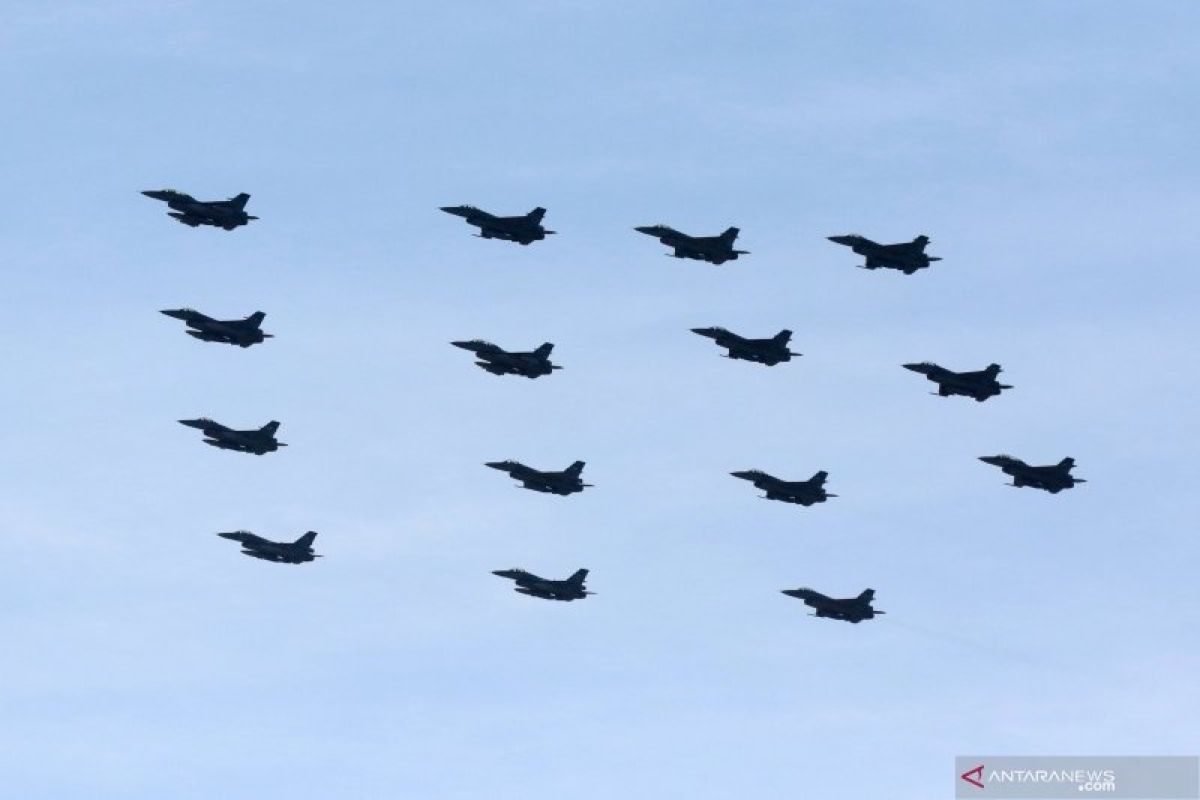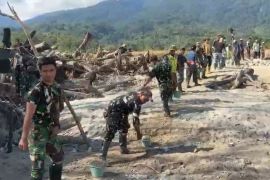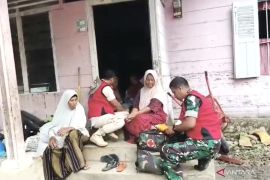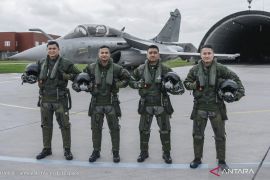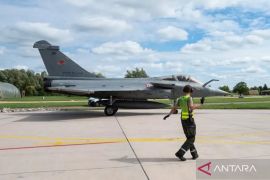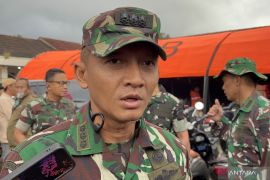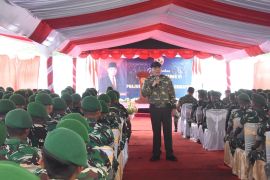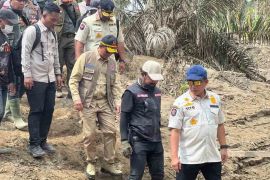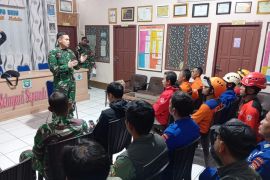Looking at this, what possible lessons can Indonesia and its armed forces, the TNI, gain? One aspect is regarding the importance of decision making based on clear and accurate information. Inaccurate information, coupled with years of propaganda, has skewed Russian perception against Ukraine.
This in turn led to the leadership making poor decisions with regard to Russia's policy towards Ukraine. Similar dangers can affect Indonesia in our decision making regarding our defense policy. Inaccurate information, such as the widespread belief and reliance on unreliable military rankings and power index, can distort our ability to comprehend the true conditions of our armed forces.
Reports of Indonesia being the 16th-strongest military in the world based on an online ranking are not only unhelpful but are also potentially dangerous, and they may skew perceptions among the public and decision makers, creating a false sense of power. This may poorly affect decision making on our defense policy and lead to miscalculations in future.
Apart from skewed perceptions based on inaccurate and unreliable information, Russia's poor planning for its invasion of Ukraine has also highlighted the danger of "polishing" information. Incomplete information received by decision makers in the Kremlin due to "information polishing" is thought to have contributed to the significant miscalculation in Russia's invasion planning for Ukraine.
Related news: Defence modernization is Navy's priority: chief of staff
Similar situations can also affect Indonesia. Former presidential candidate and current Defense Minister Prabowo Subianto once said during the 2019 presidential debate that information polishing, or known in local terms as "asal bapak senang" culture, is still prevalent in the TNI (CNN Indonesia, March 2019).
This could negatively affect sound decision making on Indonesia's defense policy by creating a false sense of "everything is going well" when realities on the ground could be different.
The significant logistical challenges that Russian forces face on the ground in Ukraine should also serve as a reminder for the TNI of the difficulties of sustaining large-scale military operations. While we certainly hope that Indonesia would not face any major conventional war in the future, Russia's invasion of Ukraine should serve as a warning that conventional war between nation states is still a very real possibility in the 21st century.
In the event that Indonesia finds itself at war, sustaining the logistical needs of troops engaged on the frontline will be critical. As shown in Ukraine, the organizational structure of an armed force as well as the ability to secure lines of communications are major contributing factors that determine whether enough supplies reach frontline troops. In Indonesia's case, the TNI should take into consideration the unique geographical conditions of the country while designing its logistical organization.
Unlike Russia, which faces a continental war in Ukraine, in the case of Indonesia, as an archipelago, it may mean any future war involving the country will be largely maritime based. This means the supply lines will rely heavily on shipping. This poses a question whether Indonesia has enough ships to support the logistical needs of the armed forces during war?
Related news: Army to follow up president's instruction during leadership meeting
Supplying island garrison close to potential hotspots, such as the Natuna Islands, or supporting major force deployments between the main islands of Indonesia will require large-scale shipping support. The navy's military sealift command (Kolinlamil) may not have sufficient number of ships to support this endeavor in times of war. As shown in Ukraine, armies engaged in battle can rapidly consume through their stocks of fuel and ammunition, necessitating regular resupply in order to maintain combat effectiveness.
In Indonesia's case, the TNI may be able to increase the navy's sealift capability by also leveraging vessels from Indonesia's merchant marine fleet, as have been carried out by several countries throughout history.
Securing the necessary logistical lift to sustain military operations is just one part of the equation. The other part is ensuring the safe flow of those logistics during wartime.
The current situation in Ukraine has shown the vulnerability of logistics convoy to get ambushed, especially when areas where logistical lines travel through are insecure. During wartime, Indonesia may face similar problems. Except in our case, it may be less about securing road networks from ambushes but it may be more about ensuring sea control to enable logistics vessels to sail unimpeded. This will require close coordination between the navy and air force to ensure that vessels traveling in the area are well protected from threats coming from under the sea, on the surface, and in air.
Another important lesson that the TNI can gleam from Russia's disastrous invasion of Ukraine is the importance of personnel training. The effectiveness of weapons is not only determined by how advanced they are, but also by how well people using them are trained. Indonesia should pay close attention to modern battlefield tactics shown in the war in Ukraine.
Combined arms tactics with close integration of the infantry, armored forces, and aircraft still remain an integral part of the battlefield. Russia's failure to adequately apply combined arms operations has played a role in the heavy losses its forces have suffered while assaulting the Ukrainian territory.
Related news: Military, police officers should have digital capabilities: President
Developing a highly-trained force requires significant investment in terms of training facilities and regular combat exercises. Cash-strapped militaries, such as the TNI, may face difficulties in fulfilling this need, as there may not be sufficient funds to develop advanced training facilities and organize complex combat exercises.
One possible alternative is to increase joint training programs and exercises with foreign militaries. As stated before, one key advantage that NATO pilots enjoy over their Russian counterparts is access to a wide network of training facilities located in each member country.
Indonesia can strive to intensify military cooperation with foreign partners in order to have access to these training facilities and joint exercises. Joint exercises with advanced militaries, like the Garuda Shield Military Exercise held with the United States, or multinational air combat exercise Pitch Black, organized by Australia, provide a wealth of learning opportunities for the TNI.
Access to these foreign training facilities and exposures to advanced combat tactics during the joint exercises may help complement shortfalls found in domestic training facilities and exercises.
As a closing note, these initial lessons on the challenges faced by the Russian military in their invasion of Ukraine are only from the results of three weeks of combat.
A more complete picture may surface after the end of the war and can provide a whole new avenue of lessons learned. However, regardless of that, Indonesia and its armed forces, the TNI, have to pay close attention to the developments in this conflict. Russia's invasion of Ukraine has major and far-reaching geopolitical ramifications.
Lessons learned from this current conflict may help prepare Indonesia in facing possible challenges that this new and uncertain world may have for us.
*M.Teguh Ariffaiz Nasution is a graduate of the University of Indonesia's international relations department.
The views and opinions expressed on this page are those of the author, and do not necessarily reflect the official policy or position of ANTARA News Agency.
Related news: Challenges facing Russian military in Ukraine
Related news: Magnitude-5.2 earthquake rattles Teluk Bintuni, West Papua
Copyright © ANTARA 2022
